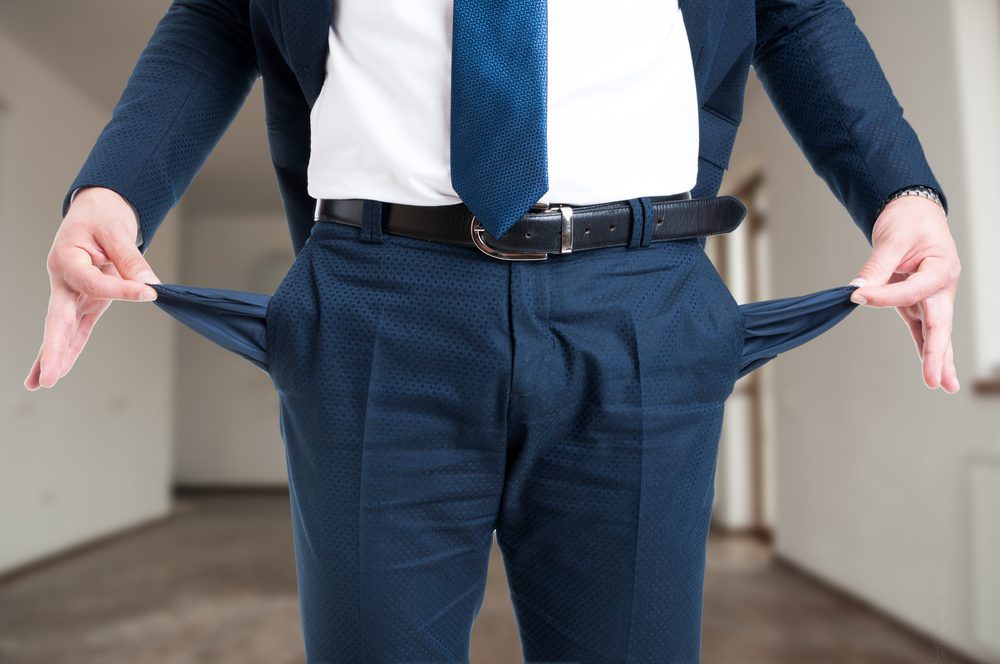When you’re in debt, it can feel like there’s no way out. You might be wondering whether bankruptcy is your only option.
There are many ways to address significant debt, and bankruptcy is just one option. Other options include cutting your expenses and consolidating your debt. Bankruptcy can help people get rid of some of their debts or restructure them so that they are easier to pay, but it is not the only way to deal with a lot of debt.
Types of Bankruptcy
When considering bankruptcy, consumers should be aware of the two main types. Each type can be beneficial depending on the consumer’s financial situation.
Chapter 7 bankruptcy
Chapter 7 bankruptcy allows for the sale of the property to repay debts. This is often pursued by those who do not earn enough money to cover their debts.
Chapter 13 bankruptcy
A Chapter 13 bankruptcy can provide relief from some unsecured debts. This kind of bankruptcy lets you reorganize your debts and set up a plan to pay them back over a certain amount of time, usually three to five years. This can be an attractive option for consumers who earn enough to repay their debts but need assistance getting a fresh start.
How bankruptcy works
What will happen with your bankruptcy depends on the type of bankruptcy you file. With chapter 7 bankruptcy, for example, usually, a trustee is appointed to take over your property and assess it to sell. Your creditors can get money from selling your belongings that have value. You may be able to keep some important personal items and maybe even real estate, but it varies depending on where you live and the rules of chapter 7 bankruptcy.
By contrast, filing for chapter 13 bankruptcy does not mean giving up all your possessions. You may be able to keep your property and possessions, as long as you have a regular income and agree to repay most of your debts according to a repayment plan approved by the court. A trustee will work with you to collect payments and distribute them to your creditors according to the plan.
Bankruptcy can be a relief for consumers who are struggling with debt, but it is important to know that not all debts can be discharged. Most tax debts, child support payments, alimony, and student loans cannot be discharged in bankruptcy. Court fines, criminal restitution, and amounts owed for personal injury caused by driving under the influence also typically cannot be discharged.
Why do people file for bankruptcy?

Filing for bankruptcy is not something to be taken lightly. It can have lasting impacts on your finances and can make it difficult to get loans or insurance in the future. However, sometimes it may be the best option available to you. Make sure you understand all the implications before making a decision.
However, while bankruptcy is often seen as a last resort, many consumers find that it is the best way to get out of a financial crisis. The process may be permanent and have some downsides, but it can help people get on a more sustainable path toward better finances.
This can be a lifesaver for those who are struggling with debt and have few other options. The process can discharge all debts, giving people a fresh start.
Bankruptcy: How to know if you should

When you are struggling to keep up with your finances, it may be time to consider bankruptcy. This can be a difficult decision to make, but in some situations, it may be the best option. There are several factors to consider before filing for bankruptcy, but it can provide relief from debt and help you get back on your feet.
Here are some reasons to consider filing:
- You have so much debt that it would be impossible to pay it off during your lifetime.
- You’ve experienced an extreme loss in income that makes it impossible to repay debts without any help.
- You have been sued for an extraordinary amount of money you cannot repay.
- Your financial situation is grim, and you need a fresh start.
- Collections agencies and creditors are calling you around the clock and you need third-party help.
Does bankruptcy affect my credit?
Bankruptcy can harm credit scores. It may be more difficult to obtain loans or credit in the future, and you may be charged higher interest rates. The length of time that bankruptcy remains on your credit report depends on the type of bankruptcy filed.
The length of time depends on the type of bankruptcy filed. For example, a Chapter 7 bankruptcy will stay on your credit report for 10 years, while a Chapter 13 bankruptcy will only stay on your reports for 7 years. However, the impact of bankruptcy will lessen over time. A bankruptcy filed last year, for example, will have a greater impact than one filed 5 years ago.
Here are some tips to help you avoid bankruptcy

There are many reasons why people may find themselves unable to pay off their debts. Some may have experienced a job loss or medical emergency, while others may have simply made poor financial choices. Whatever the reason, filing for bankruptcy should always be seen as a last resort. Here are a few tips to avoid filing for bankruptcy.
Cut your expenses
There are a few key things you can do to reduce your expenses and get your debt under control. First, take a close look at your spending habits and see where you can cut back. Even small changes can make a big difference. Second, try to redirect any extra money you have towards paying down your debt, rather than letting it go to waste. This will help you avoid bankruptcy and get on track financially. Third, stay disciplined with your spending.
Debt consolidation
Debt consolidation may be a good option for you, depending on the types and amounts of your debts. With a personal loan, you could consolidate your debts and avoid bankruptcy. This would involve using the loan proceeds to pay off your other debts.
Many companies specialize in debt consolidation. Do your research to find one that has positive reviews and does not charge excessive fees. This can be a great way to get your debt under control and start fresh.
Negotiate with creditors
There are ways to negotiate with creditors and potentially lower your payments. Some creditors may be willing to work with debtors who are willing to make alternative payment plans. In some cases, it may be possible to negotiate a settlement amount with a debt collection agency.
Credit counseling
Debt management companies can help you get a handle on your finances and develop a plan to pay off your debt. They may also be able to negotiate lower interest rates with your creditors on your behalf.
Before you commit to working with a specific company, make sure to do your research and ask plenty of questions. Some key things to inquire about include whether or not the company is accredited by a third party, what kinds of fees they charge, and whether or not their counselors are certified.
Get a second job
There are a few things you can do to make extra money to pay off your debt. You could get a second job or work more hours at your current job. You could also sell some of your belongings to generate additional income. No matter which option you choose, use the extra money to pay off your debt as quickly as possible.
Next steps
It is important to learn about the different types of bankruptcy and what each one entails. You should also compare all your options and weigh the pros and cons of each before making a decision.
Credit counseling can help you assess your financial situation and whether you could reorganize your finances on your own. At the very least, credit counseling can provide another perspective on your situation and help you decide whether bankruptcy is right for you. Many bankruptcy attorneys offer free consultations to help you figure out your next steps.







